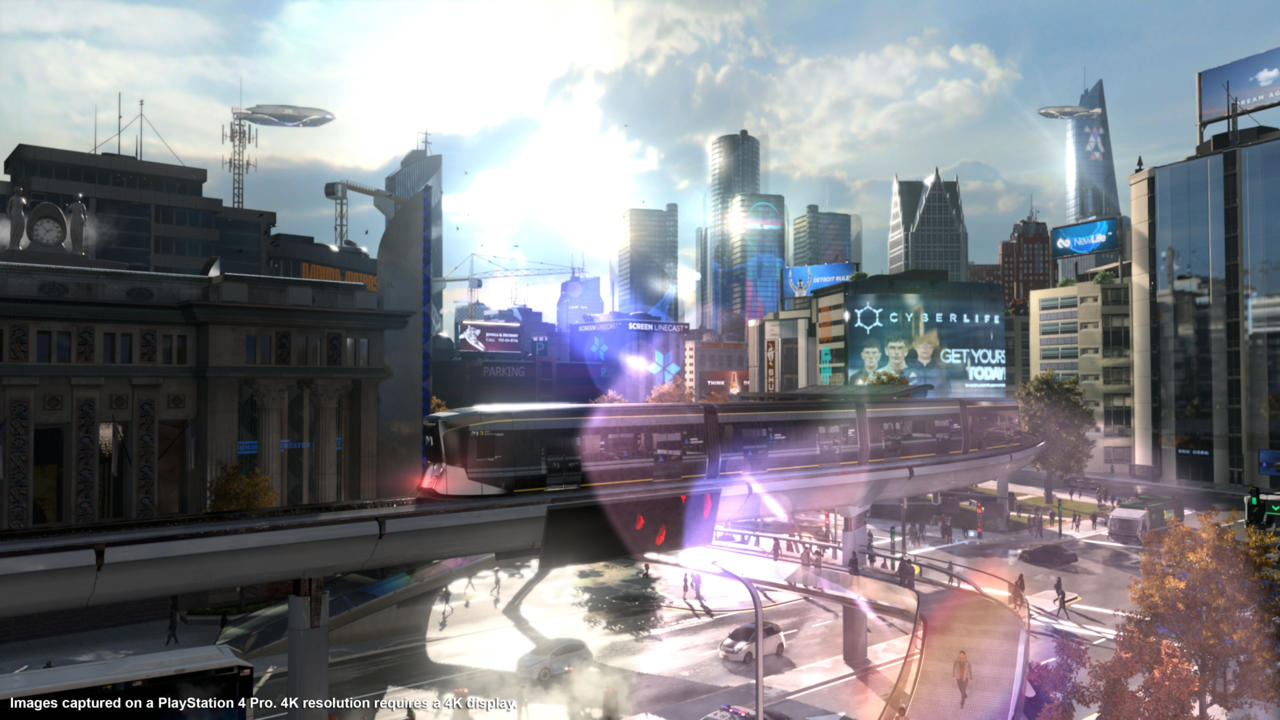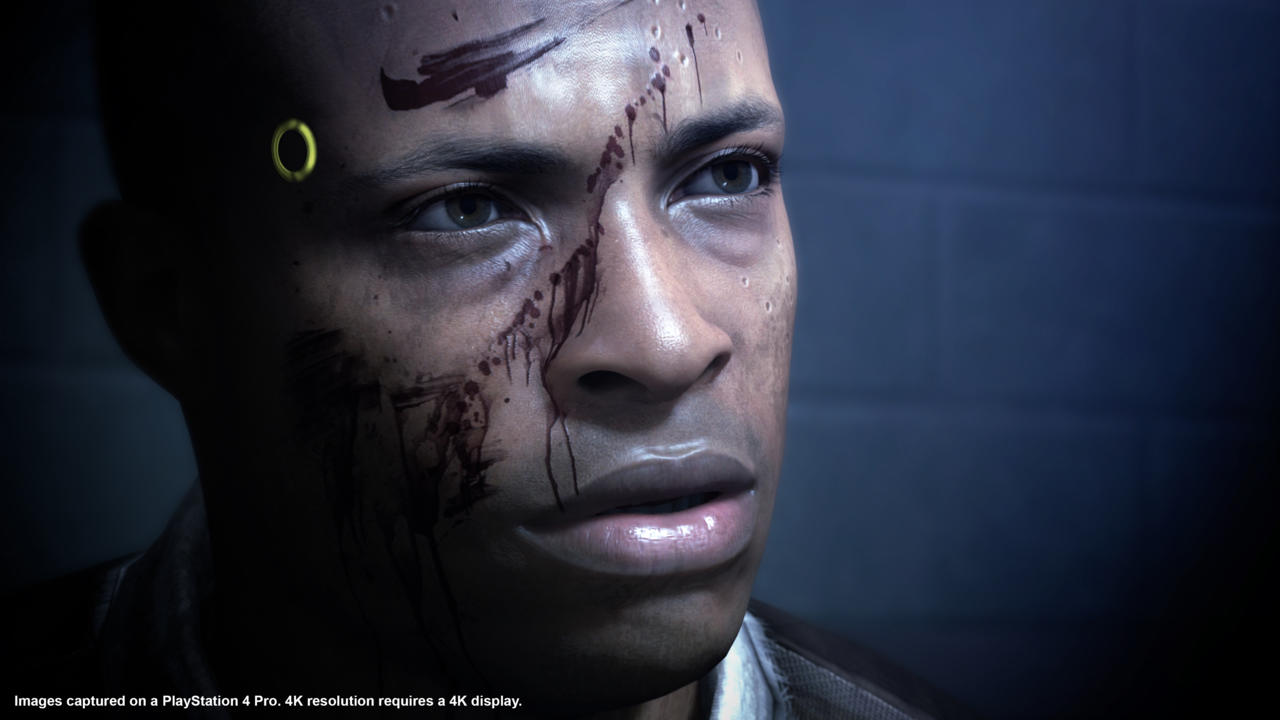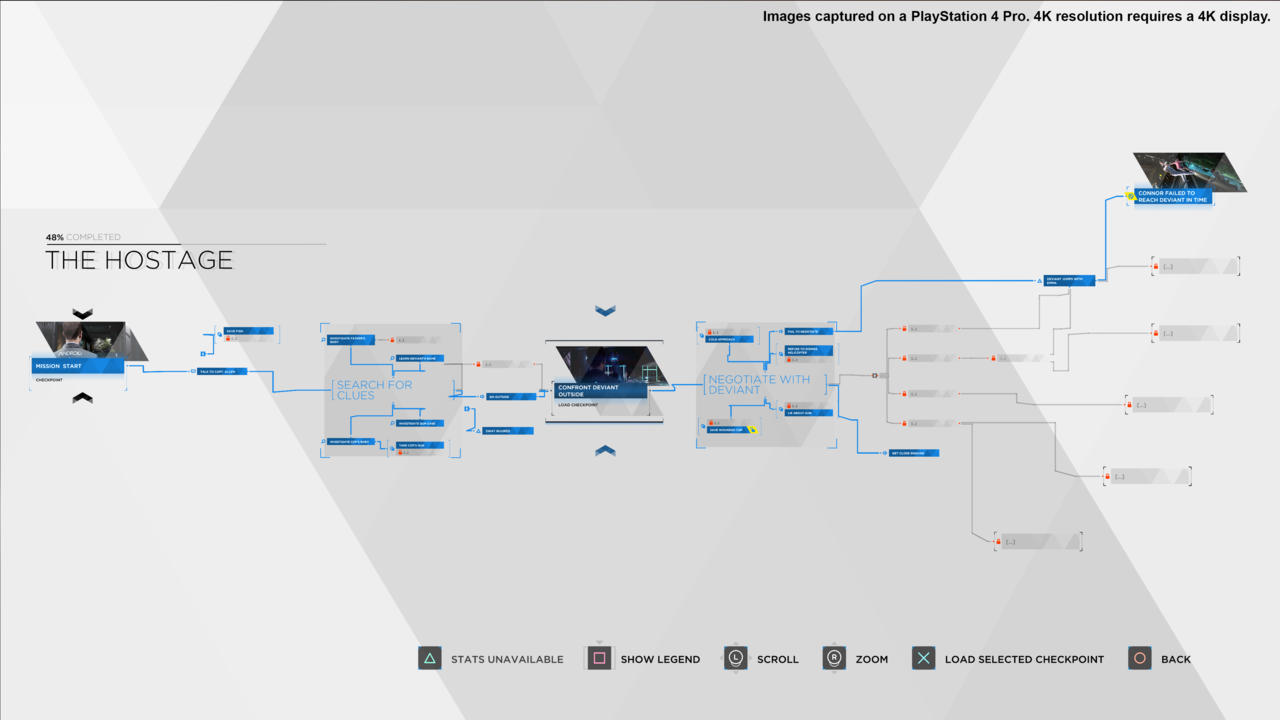After Heavy Rain and Beyond: Two Souls, David Cage's latest game, Detroit: Become Human, is almost here. After a trailer at Paris Games Week 2017 and a live demo at PSX later that year, there's been much discussion about the game's handling of sensitive issues--particularly several scenes featuring abuse and victimization of children.
We recently had the chance to play the first two or so hours of Detroit at an event, where we spoke to David Cage about the game's pre-release reception, how the team decided what scenes to cut, and whether games need to be fun.
This interview has been edited for length and clarity.
GameSpot: You've said previously that you had to cut some scenes from the game because you were worried that they would be misinterpreted. After playing the game, it's clear you do delve into a lot of really serious topics. Do you mind giving some examples and explaining that a bit more?
Sony PR: Things get cut and changed and tweaked and moved all the time, and I think that it might be a little too early to dive into what we chose to keep and not keep.
I guess the question is not necessarily about the actual content [that was cut] but rather--you don't seem to really shy away from things that could be touchy.
David Cage: It was not about shying away. We talked every day about the content of this game… and what message we would send. It's particularly challenging because we don't just tell just one story, we offer choices to the player, and the story adapts to his choices. So you want to make sure that every single branch sends a message or says something that you're happy with and comfortable with, and we were working on some scenes where we felt it could be--it was not what we wanted to say, and there was no way of [changing] the scene in a way that could be satisfying and acceptable to us, and this is why we cut them.

We realized that… we were talking about things that resonated with the real world and with very sensitive issues and we paid a lot of attention to this. The first reaction was to be scared because you feel, 'Oh, wait a second, we're dealing with [such] important things. Can we do this? Is it okay? Is it right? Is it the right thing to do or not?'
So then [you] step back and say, 'No, we shouldn't do it.' And then you realize, 'Wait a second, if we think about this, if we work on a game that is connected with the real world [and] that resonate[s] with real issues, that means that we work on something that is meaningful. And if it's meaningful, we have to do it, so we need to be responsible, we need to be serious, we need to be committed, we need to be respectful.' And this is what we discussed every day during process.
We couldn't shy away and say, 'No, let's not do it' or 'it's too big for us' or 'it's too real.' For us it's a statement to say a game like Detroit can be about serious matters. You need to do what's right and you need to be respectful. We hope that this is what we've done, and players will tell us if they feel that it's not the case, but this is something that was in our mind every second of the development.

One of the things that I noticed when I was playing is that the androids are definitely, to me at least, an allegory for lots of different kinds of marginalized people. Did you consider how to create a story that's universally relatable without glossing over the weight of issues like racism and sexism individually?
Detroit is about people, androids who wake up one day and feel that they deserve a better life. That's exactly what the story is about. They open their eyes and they feel [they] shouldn't be scrutinized for what [they] are and [they] deserve to be better treated. You can apply this to different people in the real world, and using androids was a way to be universal and to talk about all these people without pointing a finger at one category in particular.
You've shown off Detroit a few times now and have gotten some feedback, and I know some people are really concerned with the difficult subjects and how those blend with gameplay. How do you ground those heavy subjects among the more game-y ones, like the unlock symbol that pops up when you find a certain piece of evidence or information?
We were really careful about this. For example, you can't unlock any trophy with actions that are not [morally] right. That's something that we were really careful about. There's no gain in doing mean things or wrong things. The use of violence also is something we really thought about… If it's a part of life, if it serves a purpose, if it serves the narrative, if it's a part of the context and emotion, then it's fine, but it should never be egregious... And it should never be cool to be violent.
So we were really aware of all this. It was not something we discovered when we presented the Stormy Night [scene] at Paris Games Week. It was a little bit annoying to show things out of context and have people [make] a quick judgment on things [when] there's a context to this...
It was a little bit annoying to show things out of context and have people make a quick judgment on things when there's a context to this.
You know, I think Detroit asks a very interesting question, [which] is, do you think that the game should be about fun and adrenaline and that's all it can be? And if that's the case then you shouldn't talk about anything serious or anything related to real world issues, because you can't make fun of everything and you can't gamify things the way you described. You can't get points … when it's about domestic violence or segregation. You can't gamify those things. They are too serious and too important to real people, but if you consider that games don't need to be fun and based on adrenaline, if you consider that they are like literature or cinema, that they can express an emotion and talk about anything, it doesn't have to be fun.
You don't need to gamify, you don't need to put points where you do things, then I think it's acceptable, and more than acceptable, I think it's something we need to do. We need to bring meaning to these experiences because interactivity is fantastic medium, it's a way to put people in the shoes of the characters, unlike any other medium out there... We try to do it very respectfully, and I would like to insist on this fact, where we're not naïve and believe in just doing crazy things because we think it's cool and fun. On the opposite, we were very responsible and we know what we're doing and trying to do it the best way we can in being respectful to real people in real life in these situations.

I did notice that [the screen at the end of each scene] says how many points you received and the completion rate of the scene. Is that more of just an indication to see your progress through the scene? Like you said, you don't unlock trophies for certain actions, right?
You can. There are trophies like in any PlayStation game that you can unlock depending on your actions. We made sure that no difficult choice would have a trophy attached to it; that was very important. The points that you can get are [earned] by how many [narrative] branches you unlocked, and you can spend those points in the extra section where you can buy making-of, you buy artworks, you can buy the soundtrack, you can buy different things with those points.













